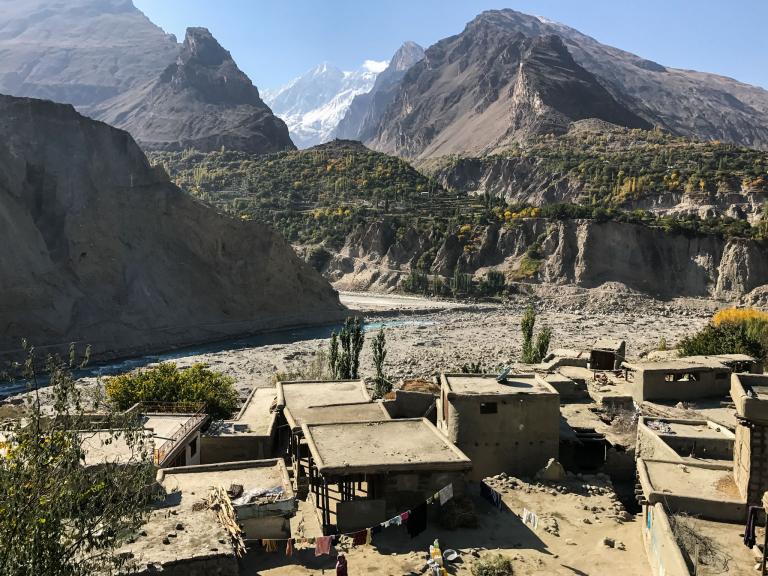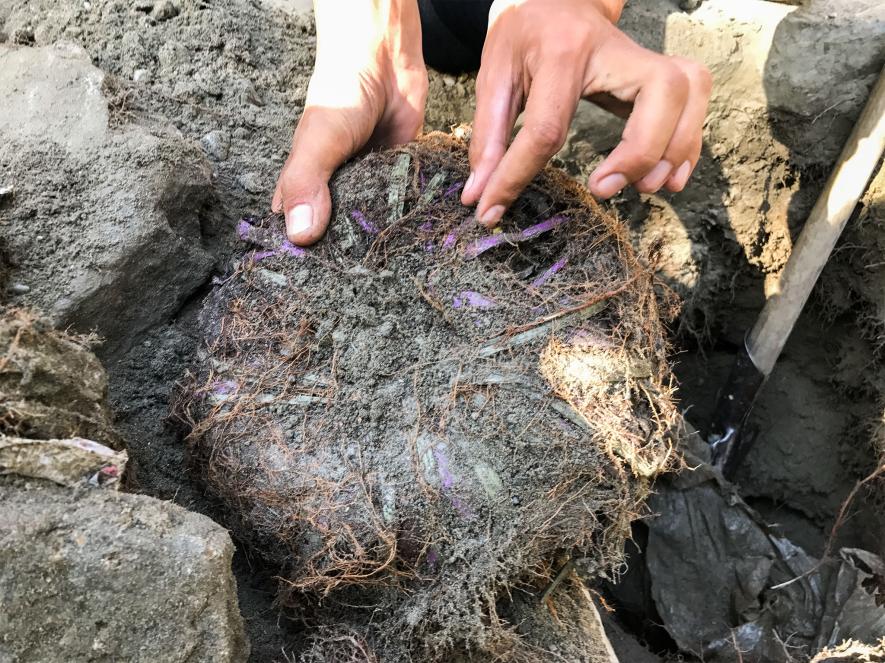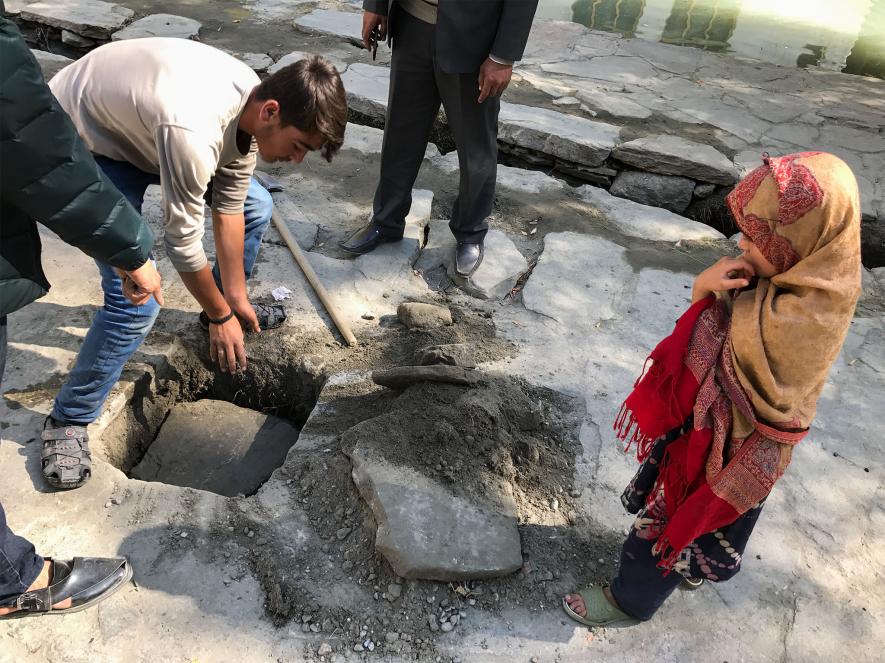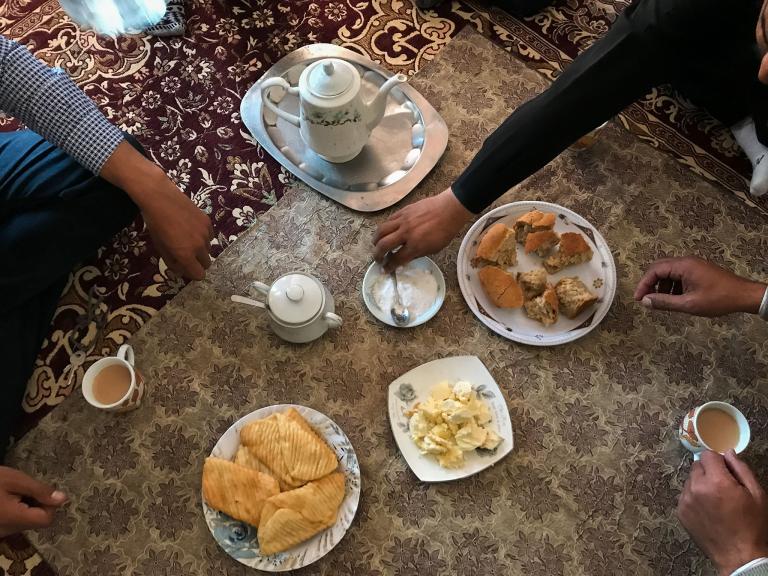Hithchiker
MEMBER
https://propakistani.pk/2018/02/02/butter-hunza-valley-might-hold-key-anti-aging/

HEALTH & MEDICINE
Hunza Valley is renowned for its beauty, and the iconic place has become even more of a fairy-tale with this tradition.
The people of Hunza have a reputation for living long lives. The reason behind their long-lasting lives have been attributed to the fresh, unpolluted air and untarnished mountain beauty – and the food they consume.
Hunza’s cuisine is typically fresh fruits, half-cooked vegetables, light grain and dairy products. That, and matlash (butter), which seems to have become the subject of intense interest.
Paul Salopek of the National Geographic reports the ancient tradition of burying the fatty gold matlash — which consists primarily of heaps of blocks of cow and yak butter.
A Far-off Tradition
Did you know that Hunza natives seal butter in heavy cases made of birch bark, and bury it underground for up to a hundred years? This tallow-like treasure might just hold the answer behind how people from Hunza enjoy longer-than-average lives.
In fact, a community activist and historian Taihan — from the peaceful village of Ganish — is himself younger than some of the matlash buried in the town square!
“Our grandparents say we used to bury it for up to a century. Today the oldest butter I know is about 40 to 50 years old.”
This tradition of burying butter is not unique to this fairy-tale like land. Moroccans preserve a butter they refer to as ‘smen’ in the same way. In Ireland, ‘bog butter’ turns up from archaeological sites that is about 5000 years old. But Hunza has kept up this butter ritual for centuries. Sealed off from the rest of South Asia by 25,000 feet peaks, it maintains a culture that is different from the rest of the world.

ALSO READ
Foreign Tourist’s Video on ‘Why You Should Visit Pakistan’ Goes Viral
A Sour Delight
Back when this picturesque valley was its own kingdom, a British colonial officer stumbled across matlash in 1892. E. F. described it as pungent and with the consistency of cheese.
“The [butter] here, like all that was given to us in the valley, was of the consistency of cheese, and had a most unpleasant odour. The older this…butter is, the more is it to the taste of the highlanders.”
Salopek himself describes it as of the taste of a ‘sour candle’. The pungent smell and sour taste is because of fermentation. As the butter curdles over time, it becomes acidic. This kills off bacteria, and gives it a very long shelf life.

ALSO READ
Capturing the Beauty of Hunza and Fairy Meadows Through a Phone Lens

Blocks or cakes of matlash are eaten raw or with flatbread. But it is special food — a delicacy.

Not everyone has the privilege to bury matlash either. Only 10 to 12 families per village can stockpile this local delight. Each family’s supply is marked by a colored piece of cloth or a flagstone.

HEALTH & MEDICINE
Hunza Valley is renowned for its beauty, and the iconic place has become even more of a fairy-tale with this tradition.
The people of Hunza have a reputation for living long lives. The reason behind their long-lasting lives have been attributed to the fresh, unpolluted air and untarnished mountain beauty – and the food they consume.
Hunza’s cuisine is typically fresh fruits, half-cooked vegetables, light grain and dairy products. That, and matlash (butter), which seems to have become the subject of intense interest.
Paul Salopek of the National Geographic reports the ancient tradition of burying the fatty gold matlash — which consists primarily of heaps of blocks of cow and yak butter.
A Far-off Tradition
Did you know that Hunza natives seal butter in heavy cases made of birch bark, and bury it underground for up to a hundred years? This tallow-like treasure might just hold the answer behind how people from Hunza enjoy longer-than-average lives.
In fact, a community activist and historian Taihan — from the peaceful village of Ganish — is himself younger than some of the matlash buried in the town square!
“Our grandparents say we used to bury it for up to a century. Today the oldest butter I know is about 40 to 50 years old.”
This tradition of burying butter is not unique to this fairy-tale like land. Moroccans preserve a butter they refer to as ‘smen’ in the same way. In Ireland, ‘bog butter’ turns up from archaeological sites that is about 5000 years old. But Hunza has kept up this butter ritual for centuries. Sealed off from the rest of South Asia by 25,000 feet peaks, it maintains a culture that is different from the rest of the world.

ALSO READ
Foreign Tourist’s Video on ‘Why You Should Visit Pakistan’ Goes Viral
A Sour Delight
Back when this picturesque valley was its own kingdom, a British colonial officer stumbled across matlash in 1892. E. F. described it as pungent and with the consistency of cheese.
“The [butter] here, like all that was given to us in the valley, was of the consistency of cheese, and had a most unpleasant odour. The older this…butter is, the more is it to the taste of the highlanders.”
Salopek himself describes it as of the taste of a ‘sour candle’. The pungent smell and sour taste is because of fermentation. As the butter curdles over time, it becomes acidic. This kills off bacteria, and gives it a very long shelf life.

ALSO READ
Capturing the Beauty of Hunza and Fairy Meadows Through a Phone Lens

Blocks or cakes of matlash are eaten raw or with flatbread. But it is special food — a delicacy.
It’s not something we eat all the time. It’s a special food. We give it away at special events like weddings.

Not everyone has the privilege to bury matlash either. Only 10 to 12 families per village can stockpile this local delight. Each family’s supply is marked by a colored piece of cloth or a flagstone.

